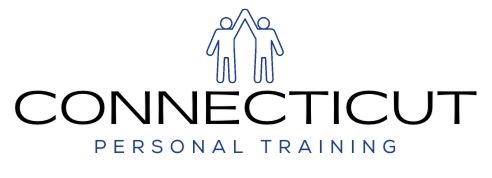Many exercise enthusiasts have asked “How can I achieve the best athletic performance possible?”
We asked our resident expert, our Wethersfield Connecticut personal trainer.
“The secret to achieving optimal athletic performance is finding the proper balance of what is called the stress/fatigue state. The stress/fatigue state is the balance between stress/fatigue, and recovery.” He continued, “In this instance, the word ‘stress’ refers to the physical demands of training.”
Our personal trainer in Wethersfield Connecticut tells us that the most important aspect of achieving optimal performance is to promote proper recovery to lessen the negative affects of the stress/fatigue state. An interesting fact is that the biggest contributor to proper recovery—sleep— is the one that is most overlooked.
Just as with training, there needs to be a focus on proper recovery techniques. Many people forget—or simply are not aware that–adaptations from training can never reach their peak without proper recovery.
“A recent study in volume 35 of the Strength and Conditioning Journal determined what proper sleep should be for an elite athlete and different sleep techniques that would contribute to proper recovery,” our personal trainer in Wethersfield Connecticut asserted.
“While general sleep recommendations are 7-9 hours a night, it has been shown that athletes may require 10-12 hours of sleep, per night, due to the additional stresses of training.”
Our personal trainer in Wethersfield Connecticut went on to tell us of a study where a college basketball team increased their nightly sleep to 10 hours a night over a 7-week period. As a result, incredible enhancements to the team’s athletic performance were recorded. In a 282-foot sprint, times dropped from 16.2 seconds to 15.5 seconds.
Shooting accuracy also improved: free throws out of 10 went from 7.9 to 8.8, and 3-point shots increased from 10.2 to 11.6 out of 15.
“Along with improving overall hours of sleep,” our Wethersfield Connecticut personal trainer said, “the study also focused on other recommendations to improve quality of sleep and recovery.”
The greatest improvement to sleep quality was found to be promoting positive sleep hygiene. Sleep hygiene is simply creating sleep routines and habits that yield a greater sleep experience. Some examples our Wethersfield Connecticut personal trainer gave, are:
Maintain a regular sleep schedule;
Avoid coffee, alcohol, and nicotine in the hours before bed;
Avoid television, eating, working, or electronics in bed or close to bedtime;
Maintain a comfortable room temperature for sleeping (~64°F); etc.
There were also positive results found from proper napping. A 30-minute nap, after lunch, following a night of partial sleep loss, improved the scores of performance-based tests. Naps should be limited to 30-minutes, said our Wethersfield Connecticut personal trainer, and you must also avoid napping in the late afternoon/evening so as to not affect your nighttime sleeping.
It is crucial to instill the importance of proper recovery to all our clients. Sleep is just as important as proper diet and sufficient rest from activity. Without enough recovery time, a client will never reach full potential no matter how hard they train.
It is important to remember that when exercising, a client is doing nothing more than breaking down muscle fibers. If recovery is never made a priority, then those muscle fibers will not fully recover, and will therefore, not grow. Without this proper muscle growth, the fat loss and training adaptation results will be limited.
So, to sum up, athletes and exercisers: YOU NEED TO SLEEP!



